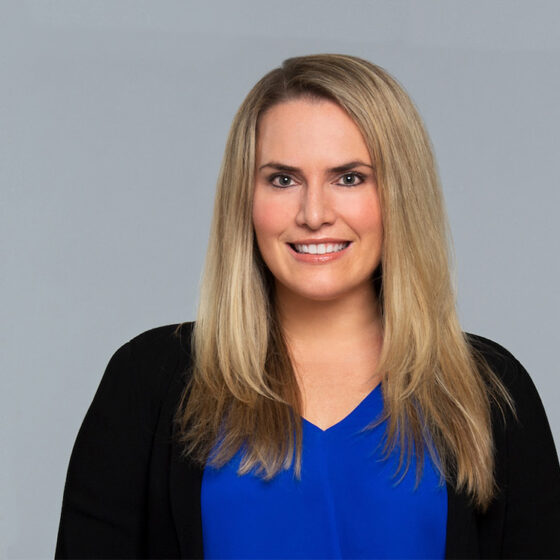Insights,
Insights,
On July 7, 2023, the Centers for Medicare & Medicaid Services (CMS) released the Hospital Outpatient Prospective Payment System Remedy for the 340B-Acquired Drug Payment Policy for CY 2018-2022 Proposed Rule (link) and accompanying fact sheet (link). This proposed rule is in response to the Supreme Court’s ruling on American Hospital Association v. Becerra to remedy past 340B OPPS payment rates that were deemed unlawful. CMS is proposing:
Comments on the proposed rule are due September 5, 2023.
Below, ADVI provides a high-level overview of the proposed rule. Please contact your ADVI Account Manager for more details.
Background
340B hospitals can purchase drugs from manufacturers at discounted rates. Historically, Part B covered outpatient drugs were reimbursed at average sales price (ASP) +6 percent. CY2018’s Outpatient Prospective Payment System final rule adjusted the payment rate for drugs acquired through 340B to ASP -22.5 percent. This significant reimbursement change was in effect from January 1, 2018 to September 27, 2022. Last year, on June 15, 2022, the Supreme Court ruled that reimbursement change for 340B drugs was unlawful because the Department of Health and Human Services (HHS) failed to conduct a survey of hospitals’ drug acquisition costs under the relevant statute. In the proposed rule, CMS states that if finalized, 1,661 facilities would receive remedy payments, at the end of CY 2023 or the beginning of CY 2024.
Proposed Remedy for the 340B-Acquired Drug Payment Policy for Calendar Years 2018-2022
CMS considered several options to determine the best remedy to address the unlawful 340B payments, including additional payments without a budget neutrality adjustment, a full claims reprocessing, and one-time aggregate payment adjustments. Ultimately CMS decided to propose a one-time lump sum payment to affected 340B covered entities for the difference between what they were paid vs. should have been paid for 340B drugs between January 1, 2018 and September 27, 2022.
Lump Sum Payments to Affected Providers for 340B-Acquired Drugs
CMS is proposing an additional payment to affected providers in the form of a one-time lump sum payment. By the Agency’s estimation, certain OPPS 340B providers received $10.5 billion less in reimbursement with the ASP -22.5 percent policy over four years. CMS states that because some CY2022 340B drug claims have already been reprocessed at ASP +6 percent, those providers have already received $1.5 billion of the $10.5 billion that is outstanding. CMS has proposed to make a one-time lump sum payment for the remaining $9 billion to affected providers, to be issued by the Medicare Administrative Contractors within 60 calendar days of receipt of instructions.
Beneficiary Copayments
Because CMS is proposing to make each remedy payment as a one-time lump sum payment issued through MAC instructions, the agency does not believe the payments would be 340B payments subject to beneficiary copayments, and accordingly do not authorize providers to seek additional beneficiary copayments.
Given the unique circumstances and the desire to make affected 340B covered entity hospitals as whole as feasible, CMS is proposing to include what would have been paid for these drugs absent the policy by beneficiaries in the remedy payments. As such, the $9 billion payment includes $1.8 billion attributable to what the affected covered entities would have collected from beneficiaries.
CMS emphasizes that 340B covered entity hospitals may not bill beneficiaries for coinsurance on remedy payments, regardless of the adjustment.
Prospective Offset for Higher Payments for Non-Drug Items and Services from CY 2018-2022
In an effort to maintain budget neutrality in the OPPS, CMS proposes to make a corresponding offset for non-drug items and services. CMS estimates that hospitals were paid $7.8 billion more for these non-drug items and services between CY 2018-2022 and proposes to reduce future payments by decreasing the OPPS conversion factor to all OPPS providers except new providers by 0.5 percent starting in CY 2025. CMS plans to issue future rulemaking that will finalize their methodology and publish annual payment rates derived from this policy. CMS expects to adjust the conversion factor reduction in future OPPS rules based on updated data.
This decrease in the OPPS conversion factor will remain in effect until the full $7.8 billion is offset, which CMS estimates will take 16 years. In addition, CMS recognizes that beneficiary copayments for non-drug items and services will decrease slightly as a result of this adjustment.
CMS requests comments on this proposed methodology and suggestions for other alternative timelines for maintaining budget neutrality such as reductions of a fixed dollar amount over a fixed period of time (i.e., set the conversion factor to reflect a $780 million reduction annually for 10 years). CMS also requests comments on whether to delay the conversion factor reduction to CY 2026 to allow hospitals additional time to prepare.
New Providers
CMS is proposing to exclude providers that did not enroll in Medicare until after January 1, 2018, from the proposed prospective rate reduction, as these providers did not fully benefit from the increased payment for non-drug items and services from CY 2018-2022. CMS proposes to designate these hospitals as “new providers” and calculate their payment rates using the conversion factor before applying the proposed 0.5 percent annual adjustment applicable to hospitals that are not considered “new providers”. CMS estimates that approximately 300 providers of the 3,900 OPPS providers will meet this definition.
CMS is soliciting comments on its proposed definition of “new provider” and its proposal to exempt these providers. CMS is also soliciting comments on whether there are other easily identifiable categories of providers who should be exempted.
ADVI will continue monitoring developments and next steps. This is a delayed release. ADVI Instant content is distributed in real time for retainer clients. Get in touch to learn more about how we can support your commercialization, market access, and policy needs.


Head of Policy, Research, and Analysis